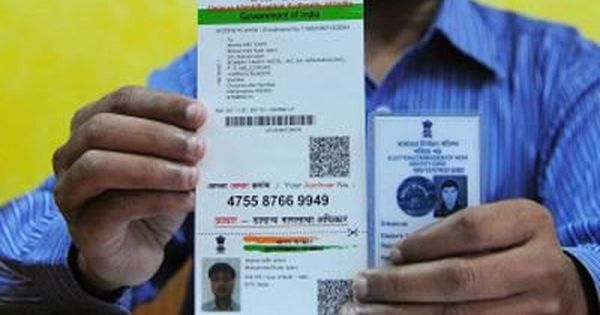Modi government has decided to amend the Telegraph Act and Prevention of Money Laundering Act (PMLA) to allow private entities like banks and commerce payment systems to use Aadhar as a ‘Know your customer’ (KYC) method. The amendments were cleared by the union cabinet on Monday. The amendments also have provisions for strict punishment for data breach and requirement of parental consent for access to a child’s biometric data. The amendment has provisions for extension of punishment for data breach from three years to ten years.
Earlier Finance Minister Arun Jaitley had suggested that a new legislation could be brought which would allow banks and telecommunication players to use Aadhar data. “Most of what Aaadhar does has been upheld by the court. What has not been upheld falls in two categories? The bulk of that has been struck down on two principles. One is the principle of proportionality,” said Arun Jaitley at the Hindustan Times leadership summit in October.
Supreme Court in its decision on Aadhar card ruled that the use of Aadhaar data by private companies as unconstitutional. These companies could no longer make Aadhaar identification compulsory for their products and services. But the amendment in the act will once again make the verification process easy for the companies.
Telecom companies and banks were not happy with the apex court’s ruling because Aadhaar has simplified customer verification to a great extent. According to bureaucrats, people need some kind of digital identity, “Digital identity is required across platforms. So it’s not a question of Aadhaar or mobiles alone. A lot of people, because they move to the digital mode, they need some form of digital identity. Now if it cannot be Aadhaar, what should it be. We have to evolve through this,” said Secretary, Department of Telecommunications (DoT) Aruna Sundararajan.
The use of biometrics for identity verification has eased the process for all private and public companies. Before Aadhar was not there one needed to submit a photo, proof of Identity and proof of address along with other forms and requisite docs to open a saving account. To purchase a SIM card back in 2010, you had to submit a similar set of proof of identity, proof of address and photo to the Telecom Operator and even after that you had to wait for 1-2 days for the connection to be active. Post Aadhar, to open a bank account all you had to do is, walk into the bank with no documents whatsoever, and you could get a bank account opened within an hour or less by providing Aadhaar Number and the thumb impression.
The Supreme Court ruling was also a big blow to the bourgeoning fintech sector of the country. It is the e-KYC facility that has allowed fintech companies like Paytm, Jio, and Zerodha to reach new heights in customer acquisition and service delivery to consumers in a hassle-free way on their mobile devices at the comfort of their home. With the e-KYC, the cost of acquiring the customer and providing various services came down drastically. Today fintech is most innovative sectors and the cost of financial technology is among the lowest in the world only due to the blessing of Aadhar.
So, it was very important to bring a legislation that allows private companies to access to Aadhar data with strong safety measures. The amendment will do the same and will be helpful for the growth of banks, financial and technology sector of the country.

























